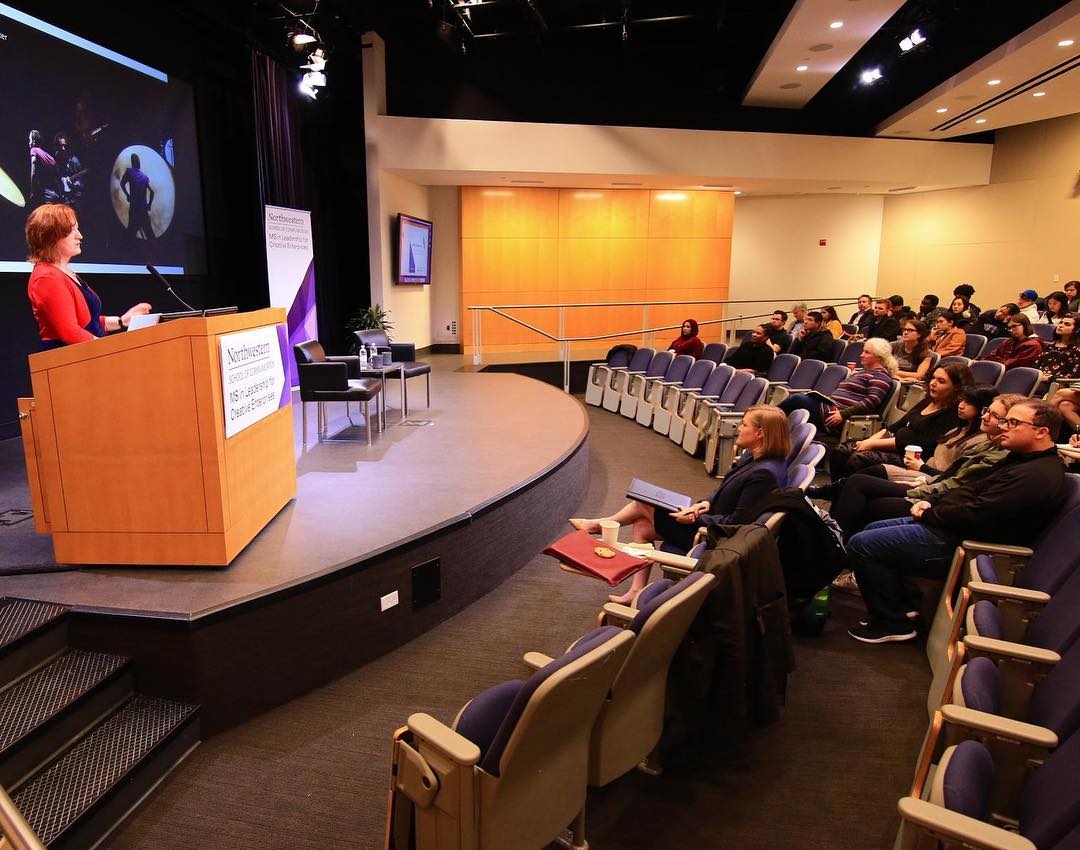
By Charlie Wein
By its nature, the world of art is abstract. There’s no right or wrong form of artistic style and everyone has the right to express their work in whichever way they like. For a performing artist, the hardest part is finding a means of getting their work out for the public to see, and it’s a difficult task. Presenting art can be incredibly time consuming, very expensive, and all comes without knowing if anyone will actually come to see it. As a performing artist today, it’s easy to become disheartened by the lack of support provided to the arts, so it’s always nice to be reminded that there are those who understand the importance of the arts and culture. And not just as a means of expression, but as one of the most valuable tools for connecting people and making a real impact on the world.
Students in the MSLCE program recently had the pleasure to meet one such person when Shona McCarthy, Chief Executive of the Edinburgh Festival Fringe, spoke at the program’s final Speaker Series of the year. Shona has a career built on encouraging all forms of expression and providing a gateway for artists to the public. Having grown up amidst the Irish Conflict, Shona has dedicated herself to using arts and culture as a means to reinvigorate communities. Shona led the town of Derry in Ireland to be designated the “City of Culture” with a year of events that explored and celebrated the history and identity of the city.
As Chief Executive, Shona has made it her mission to make the Festival Fringe accessible to all performers and audiences. The festival is built around the idea that anyone can come present any kind of performance- the festival does not curate the shows nor censor in any way. There is no other festival in the world that provides that kind of freedom, and with over 50,000 performances over the 25-day festival, the agency is certainly appealing to the artists.
Through all the questions about operations, planning, and preparation, it was clear there was a central theme in Shona’s approach to leading, as the conversation always came back to people. Shona says that her real job is figuring out how to improve the festival so that art and culture can reach a wider audience- so that it can form connections between us as human beings and inspire change and empathy.